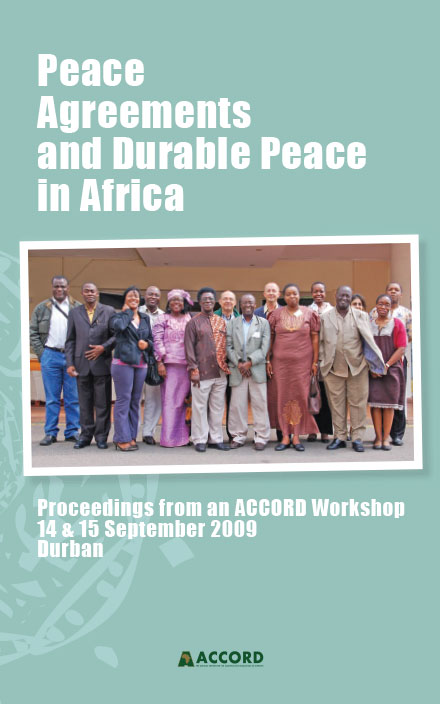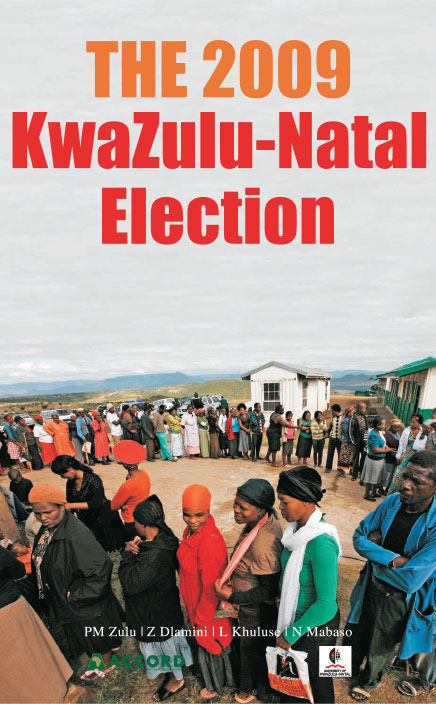Darfur and the genocide debate
Abstract The atrocities committed by the Government of Sudan backed Janjaweed militia in the ongoing conflict in Darfur have been labelled differently by analysts and scholars. While some argue that
Abstract The atrocities committed by the Government of Sudan backed Janjaweed militia in the ongoing conflict in Darfur have been labelled differently by analysts and scholars. While some argue that

ACCORD held a workshop in Durban, South Africa on 14 and 15 September 2009 on “Peace Agreements and Durable Peace in Africa”. The aim was to evaluate the democratisation and

Based on its mandate from the KwaZulu-Natal Legislature, ACCORD, in collaboration with its African Alliance for Peace (AfAP) partners, the Nairobi Peace Initiative-Africa (NPI-Africa) and the West Africa Network for
General Romeo Dallaire has done the peacekeeping community an enormous service by painstakingly reconstructing the events that led to the Rwanda genocide and the international community’s response, or lack thereof,
The author would like to thank Helen Scanlon for her interest in her work, Tom Crick of The Carter Center who first introduced her to Liberia, Cerue Garlo and Anu
The author gratefully acknowledges the comments and suggestions made by Beth Goldblatt and Kelli Muddell in working on this case study, which also benefits from her conversations (in alphabetical order)
Abstract The right to intervene under the AU Act is a radical departure from, and in stark contrast with, the principle of State sovereignty and non-intervention, the very cornerstones of
Abstract This article seeks to examine the evolution of the conflict resolution community in South Africa through a combination of history and policy analysis. Each section roughly corresponds to the
Abstract The world-wide surge in the number and violence of open conflicts revolving around ethnic or religious identities towards the end of the 20th century is a powerful reminder that
Abstract This article deploys a politico-sociological historical analysis in the interrogation of the origins, tenacity and resilience of Ndebele particularism across pre-colonial, colonial and post-colonial epochs in Zimbabwe. While the